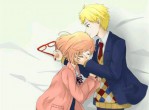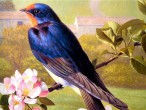
英文童话故事绘本作文【一】
您好!儿童时期是培养幼儿养成良好阅读习惯的关键期。为了让幼儿养成积极的阅读兴趣和良好的阅读习惯,我园自今年5月份开展“读书启迪心智,书香润泽童年”为主题的图书漂流活动,活动受到家长大力支持和孩子们的普遍欢迎。
20**年,我们主要做了如下工作:
1、精心购置的4万多元幼儿图书,进行图书漂流活动。
2、邀请学前教育专家董旭花教授在人民剧场为家长进行了“让阅读点亮人生”的免费专题讲座。
3、举办了以“悦读 乐玩”为主题的第22个“六 一”国际儿童节庆祝活动。
4、举行亲子图书制作评选活动。
5、开展书香宝宝评选活动。
6、在幼儿园网站和论坛也进行大量的宣传和交流互动。
20**年,为开展好此项工作,幼儿园将继续购置1万元幼儿图书,免费提供给家长进行亲子阅读;我园教师团队以对幼儿绘本多年实践和多方考察,向您推荐优秀幼儿绘本期刊。家长可以根据自身需要,自愿订阅您需要的期刊,订阅的期刊每月由班级老师统一发放到您的\'手中。
愿您在与孩子的亲子互读中,体验温馨、感受快乐,让孩子在愉悦中接受语言、接受知识;让孩子远离过度对电脑、电视的迷恋,而产生的伤害;让孩子在您生动的声音表述中,在您与孩子的玩与学中,给孩子的心灵播下幸福的种子!
英文童话故事绘本作文【二】
可是,小女孩的信心被巴尔顿?尔西、多吉?爱尔娜铃多等人的不相信击垮了,小女孩心中仿佛升起了一束火焰,她下了决心:“我一定要让人们知道世界上真的有一种叫鲸鱼的动物。”
夜晚降临的\'时候,小女孩在一个深深地大洞里找到了候鸟,小女孩请候鸟带着村里人去看鲸鱼,候鸟同意了。
第二天清早,候鸟驮着所有人去看鲸鱼。人们看见了鲸鱼,都连连赞叹“哇!”大家异口同声地叫着。人们都围着鲸鱼七嘴八舌地议论,有人说:“好大的鱼呀”又有人说:“它是…”最后,盖尔西爷爷说“这真是一头大鲸鱼!”于是,他们给小女孩和候鸟道了歉,又把鲸鱼当成村子的吉祥物,在鲸鱼湖旁种上了树,来保护它。
英文童话故事绘本作文【三】
首先绘本的阅读要遵循十个关键,定义、真绘本、读者结构、独特价值、图文关系、独特性、艺术表现、语言功能、艺术创意、多种多样。
那如何阅读绘本呢?第一步,主题讨论,与孩子讨论他的感受、想法、变化等等,先通过讨论对绘本有一个初步的认识;第二步,课前准备,对绘本内容进行解析,并找出绘本的目标、重点和难点,可以有的放矢的掌握整个内容,同时准备好需要的材料;第三步,绘本教学,讲准备好的内容引导着孩子跟着思维走,不断开拓已有的`知识点,并发现更多的可能性;第四步,绘本延展,绘本的阅读就是一种全脑思维,可以通过探讨碰撞,找到更多的可能性,还可以通过导图将绘本内容提炼,迅速掌握要点。通过这样的四步曲,你会不会阅读绘本了呢?
在本次课程中南子老师以《安的种子》这本为例,非常细致的从他们自身的想法、行为、雪花、小狗、着装等等各方面全面分析这本书。每一个小细节,如果让我自己看肯定看不到这些点,顶多只是看看图画,知道最后是安的莲花开了而已。如果那样真真的是对不起这本书,完全没有掌握到精髓。
通过《安的种子》,我知道了等待的重要性,耐得住寂寞,用智慧看准时机,不要急躁、患得患失。绘本是充满人生哲理的智慧书,我一定要好好学习,将来带着我的孩子一起读,让他们从书本中感悟人生,发散思维,创造更多的可能性。
英文童话故事绘本作文【四】
There were three of them. There were four of us, and April lay on the campsite and on the river, a mixture of dawn at a damp extreme and the sun in the leaves at cajole. This was Deer Lodge1on the Pine River in Ossipee, New Hampshire, though the lodge was naught2 but a foundation remnant in the earth. Brother Bentley's father, Oren, had found this place sometime after the First World War, a foreign affair that had seriously done him no good but he found solitude3abounding4 here. Now we were here, post World War II, post Korean War, Vietnam War on thebrink5. So much learned, so much yet to learn.
Peace then was everywhere about us, in the riot of young leaves, in the spree of bird confusion and chatter6, in the struggle of pre-dawn animals for the start of a new day, a CooperHawk7 that had smashed down through trees for a squealing8 rabbit, yap of a fox at a youngster, a skunk9 at rooting.
We had pitched camp in the near darkness, Ed LeBlanc, Brother Bentley, Walter Ruszkowski, myself. A dozen or more years we had been here, and seen no one. Now, into our campsite deep in the forest, so deep that at times we had to rebuild sections of narrow road (more a logger's path flushed out by earlier rains, deep enough where we thought we'd again have no traffic, came a growling10 engine, an old solid body van, a Chevy, the kind I had driven for Frankie Pike and the Lobster11 Pound in Lynn delivering lobsters12 throughout the Merrimack Valley. It had pre-WW II high fenders, a faded black paint on a body you'd swear had been hammered out of corrugated13 steel, and an engine that made sounds too angry and too early for the start of day. Two elderly men, we supposed in their seventies, sat the front seat; felt hats at the slouch and decorated with an assortment14 of tied flies like a miniature bandoleer ofammunition15 on the band. They could have been conscripts for Emilano Zappata, so loaded their hats and their vests as they climbed out of the truck.
"Mornin', been yet?" one of them said as he pulled his boots up from the folds at his knees, the tops of them as wide as a big mouth bass16 coming up from the bottom for a frog sitting on a lily pad. His hands were large, the fingers long and I could picture them in a shop barn working aprimal17 plane across the face of a maple18 board. Custom-made, old elegance19, those hands said.
"Barely had coffee," Ed LeBlanc said, the most vocal1 of the four of us, quickest at friendship, at shaking hands. "We've got a whole pot almost. Have what you want." The pot was pointed2out sitting on a hunk of grill3 across the stones of our fire, flames licking lightly at its sides. The pot appeared as if it had been at war, a number of dents4 scarred it, the handle had evidently been replaced, and if not adjusted against a small rock it would have fallen over for sure. Once, a half-hour on the road heading north, noting it missing, we'd gone back to get it. When we fished the Pine River, coffee was the glue, the morning glue, the late evening glue, even though we'd often unearth5 our beer from a natural cooler in early evening. Coffee, camp coffee, has a ritual. It is thick, it is dark, it is potboiled over a squaw-pine fire, it is strong, it is enough to wake the demon6 in you, stoke last evening's cheese and pepperoni. First man up makes the fire, second man the coffee; but into that pot has to go fresh eggshells to hold the grounds down, give coffee a taste of history, a sense of place. That means at least one egg be cracked open for its shells, usually in the shadows and glimmers7 of false dawn. I suspect that's where "scrambled8 eggs" originated, from some camp like ours, settlers rushing west, lumberjacks hungry, hoboes lobbying for breakfast. So, camp coffee has made its way into poems, gatherings9, memories, a time and thing not letting go, not being manhandled, not being cast aside.
"You're early enough for eggs and bacon if you need a start." Eddie added, his invitation tossedkindly10 into the morning air, his smile a match for morning sun, a man of welcomes. "We have hot cakes, kulbassa, home fries, if you want." We have the food of kings if you really want to know. There were nights we sat at his kitchen table at 101 Main Street, Saugus, Massachusetts planning the trip, planning each meal, planning the campsite. Some menus were founded on a case of beer, a late night, a curse or two on the ride to work when day started.
"Been there a'ready," the other man said, his weaponry also noted11 by us, a little more orderly in its presentation, including an old Boy Scout12 sash across his chest, the galaxy13of flies in supreme14 positioning. They were old Yankees, in the face and frame the pair of them undoubtedly15 brothers, staunch, written into early routines, probably had been up at three o'clock to get here at this hour. They were taller than we were, no fat on their frames, wide-shouldered, big-handed, barely coming out of their reserve, but fishermen. That fact alone would win any of us over. Obviously, they'd been around, a heft of time already accrued16.
Then the pounding came, from inside the truck, as if a tire iron was beating at the sides of the vehicle. It was not a timid banging, not a minor1 signal. Bang! Bang! it came, and Bang! again. And the voice of authority from some place in space, some regal spot in the universe. "I'm not sitting here the livelong day whilst you boys gab2 away." A toothless meshing3 came in his words, like Walter Brennan at work in the jail in Rio Bravo or some such movie.
"Comin', pa," one of them said, the most orderly one, the one with the old scout4 sash riding him like a bandoleer.
They pulled open the back doors of the van, swung them wide, to show His Venerable Self, ageless, white-bearded, felt hat too loaded with an arsenal5 of flies, sitting on a white wicker rocker with a rope holding him to a piece of vertical6 angle iron, the crude kind that could have been on early subways or trolley7 cars. Across his lap he held three delicate fly rods, old as him, thin, bamboo in color, probably too slight for a lake's three-pounder. But on the Pine River, upstream or downstream, under alders8 choking some parts of the river's flow, at a significant pool where side streams merge9 and phantom10 trout11 hang out their eternal promise, most elegant, fingertip elegant.
"Oh, boy," Eddie said at an aside, "there's the boss man, and look at those tools."Admiration12 leaked from his voice.
Rods were taken from the caring hands, the rope untied13, and His Venerable Self, white wicker rocker and all, was lifted from the truck and set by our campfire. I was willing to bet that my sister Pat, the dealer14 in antiques, would scoop15 up that rocker if given the slightest chance. The old one looked about the campsite, noted17 clothes drying from a previous day's rain, order of equipment and supplies aligned18 the way we always kept them, the canvas of our tent taut19 and true in its expanse, our fishing rods off the ground and placed atop the flyleaf so as not to tempt20 raccoons with smelly cork21 handles, no garbage in sight. He nodded.
We had passed muster22.
"You the ones leave it cleaner than you find it ever' year. We knowed sunthin' 'bout16 you. Never disturbed you afore. But we share the good spots." He looked closely at Brother Bentley, nodded a kind of recognition. "Your daddy ever fish here, son?"
Brother must have passed through the years in a hurry, remembering his father bringing him here as a boy. "A ways back," Brother said in his clipped North Saugus fashion, outlander, specific, no waste in his words. Old Oren Bentley, it had been told us, had walked five miles through the unknown woods off Route 16 as a boy and had come across the campsite, the remnants of an old lodge1, and a great curve in the Pine River so that a mile's walk in either direction gave you three miles of stream to fish, upstream or downstream. Paradise up north.
His Venerable Self nodded again, a man of signals, then said, "Knowed him way back some. Met him at the Iron Bridge. We passed a few times." Instantly we could see the story. A whole history of encounter was in his words; it marched right through us the way knowledge does, as well as legend. He pointed2 at the coffeepot. "The boys'll be off, but my days down there get cut up some. I'll sit a while and take some of thet." He said thet too pronounced, too dramatic, and it was a short time before I knew why.
The white wicker rocker went into a slow and deliberate motion, his head nodded again. Hespoke3 to his sons. "You boys be back no more'n two-three hours so these fellers can do their things too, and keep the place tidied up."
The most orderly son said, "Sure, pa. Two-three hours." The two elderly sons left the campsite and walked down the path to the banks of the Pine River, their boots swishing at thigh4 line, the most elegant rods pointing the way through scattered5 limbs, experience on the move.Trout6 beware, we thought.
"We been carpenters f'ever," he said, the clip still in his words. "Those boys a mine been some good at it too." His head cocked, he seemed to listen for their departure, the leaves and branches quiet, the murmur7 of the stream a tinkling8 idyllic9 music rising up the banking10. Old Venerable Himself moved the wicker rocker forward and back, a small timing11 taking place. He was hearing things we had not heard yet, the whole symphony all around us. Eddie looked at me and nodded his own nod. It said, "I'm paying attention and I know you are. This is our one encounter with a man who has fished for years the river we love, that we come to twice a year, in May with the mayflies, in June with the black flies." The gift and the scourge12, we'd often remember, having been both scarred and sewn by it.
Brother was still at memory, we could tell. Silence we thought was heavy about us, but there was so much going on. A bird talked to us from a high limb1. A fox called to her young. We were on the Pine River once again, nearly a hundred miles from home, in Paradise2.
"Name's Roger Treadwell. Boys are Nathan and Truett." The introductions had been accounted for.
Old Venerable Roger Treadwell, carpenter, fly fisherman, rocker, leaned forward and said, "You boys wouldn't have a couple spare beers, would ya?"
Now that's the way to start the day on the Pine River.











